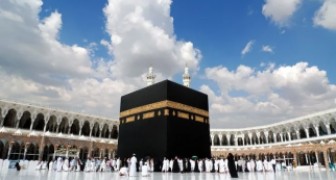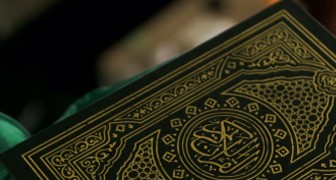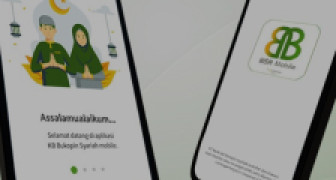Sharia
Sharia System
Sharia banking carries out the same function as conventional banking, namely as an intermediation (distribution) institution between customers who own funds (shahibul mal) and customers who need funds. However, fund customers in Islamic banks are treated as investors and/or depositors. Sharia banking distributes these funds to financing customers for various needs, both productive (investment and working capital) and consumptive. From this financing, sharia banks will receive profit sharing/margin which is income for sharia banks. So, financing customers will pay the principal + profit sharing/margin to the Islamic bank. The principal will be returned in full to the fund customer, while the profit sharing/margin will be divided between the sharia bank and the fund customer, in accordance with the agreed ratio.
This means that in Islamic banks, funds from funding customers must be 'cultivated' first to generate income. This income will be shared for the benefit of the sharia bank and fund customers.
Sharia Banking Product Schemes
In its operations, Islamic banks use several schemes that are in accordance with sharia as explained as follows:
Funding/Fund collection: Wadiah and mudharabah.
Wadia (deposit)
With the wadiah scheme, customers entrust their funds to a sharia bank. Customers allow their funds to be used by sharia banks for various purposes (which comply with sharia). However, if the customer wants to withdraw funds, the sharia bank is obliged to provide the funds. Generally, the wadiah scheme is used in current account products and some types of savings.
Mudarabah (Investment)
With the mudharabah scheme, customers invest their funds in a sharia bank to be managed. In this scheme, KB Bank Syariah functions as an investment manager for fund customers. Customers entrust the management of these funds for profitable (and sharia-compliant) business needs. The profits from this business will be divided between fund customers and KB Bank Syariah according to the ratio agreed in advance.
Financing/Distribution of funds: Murabahah, ijarah, istishna, mudharabah, musyarakah etc.
Murabaha
It is a sale and purchase agreement between a customer and a sharia bank. Sharia banks will buy goods that customers need and then sell these goods to customers at an agreed margin. The selling price (principal financing + margin) will be paid in installments every month over a period of time agreed between the customer and the sharia bank. Because the selling price has been agreed in advance, the customer's installments are fixed during the financing period. This scheme is also widely used by KB Bank Syariah to finance working capital or investment in the form of goods. Around 70% of sharia bank financing uses the murabahah scheme.
Ijarah
It is a rental agreement between a customer and a sharia bank. Sharia banks finance the need for services or benefits of goods to then be rented to customers. Generally, customers pay rent to the Islamic bank every month at an amount agreed in advance.
Istishna
It is a sale and purchase agreement between a customer and a sharia bank, but the goods to be purchased are still in the process of being made. Sharia banks finance the manufacture of these goods and receive payment from customers in the amount of the goods financing plus a profit margin. Payment of principal and margin installments to Islamic banks is not made all at once at the end of the period, but is paid in installments according to the agreement. Generally, Islamic banks utilize this scheme for construction financing.
Mudharabah
This is a profit sharing based contract, where the sharia bank fully covers business/investment capital needs.
Musyarakah
This is a profit sharing based contract, where the sharia bank does not fully cover the business/investment capital requirements (usually around 70 to 80%).
Service: Wakalah, Rahn, Kafalah, Sharf etc.
Wakalah
Wakalah means guardianship/representation. This means that KB Bank Syariah works to represent customers in doing something.
Rahn
Rahn means pawn. This means that sharia banks lend money (qardh) to customers with collateral that the customer entrusts to the sharia bank. Islamic banks charge a deposit fee for the collateral to cover the costs and profits of the Islamic bank. KB Bank Syariah applies this scheme to iB Siaga Emas.
Kafalah
With the kafalah scheme, sharia banks guarantee their customers. If something happens to the customer, the sharia bank will be responsible to the 3rd party according to the initial agreement.
Sharf
Is a money exchange service.
Differences between Islamic banks and conventional banks
Some groups of people still question the difference between Islamic and conventional banks. There are even some people who think that Islamic banks are just a camouflage trick to attract business from the emotional segment of Muslims. In fact, there are quite a lot of differences between Islamic banks and conventional banks, starting from the level of paradigm, operations, organization to the products and schemes offered. The sharia banking paradigm is in accordance with sharia economics which was explained earlier. Meanwhile, other differences are as follows:
| Types of Difference | Sharia Bank | Conventional Bank |
| Legal Foundation | Al Qur'an & Sunnah + Positive law | Positive Law |
| Operational Base | Profit sharing | Interest |
| Product Scheme | Based on sharia, such as mudharabah, wadiah, murabahah, musyarakah etc | Interest |
| Treatment of Community Funds | Public funds are deposits/investments that only get results if they are invested/cultivated first | Public funds are savings that must be paid interest when they mature |
| Fund distribution sector | Must be halal | Not paying attention to halal/haram |
| Organization | There must be a SSB (Sharia Supervisory Board) | No SSB |
| Accounting Treatment | Accrual and Cash Basis (For profit sharing) | Accrual Basis |
























